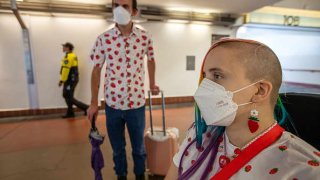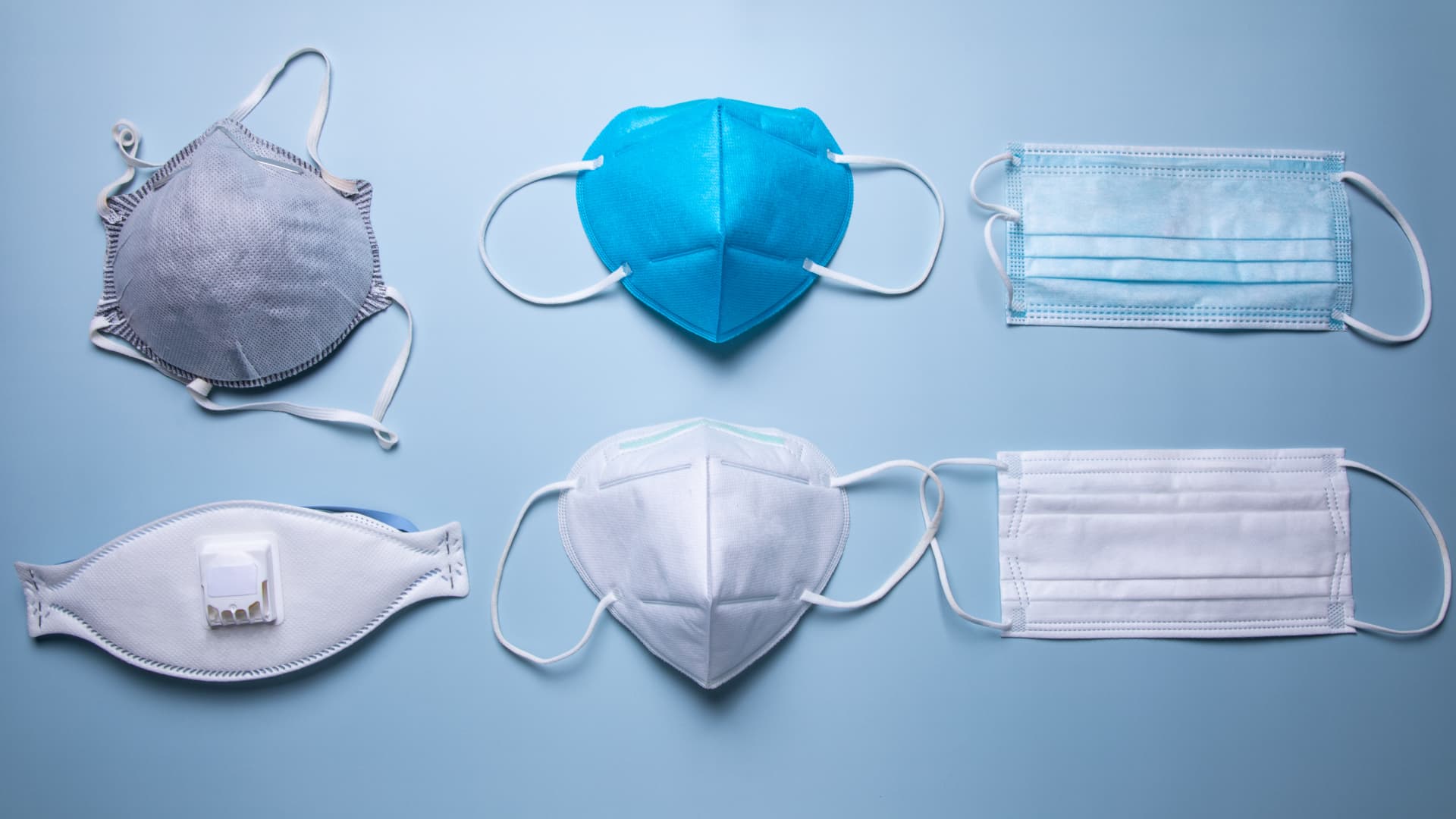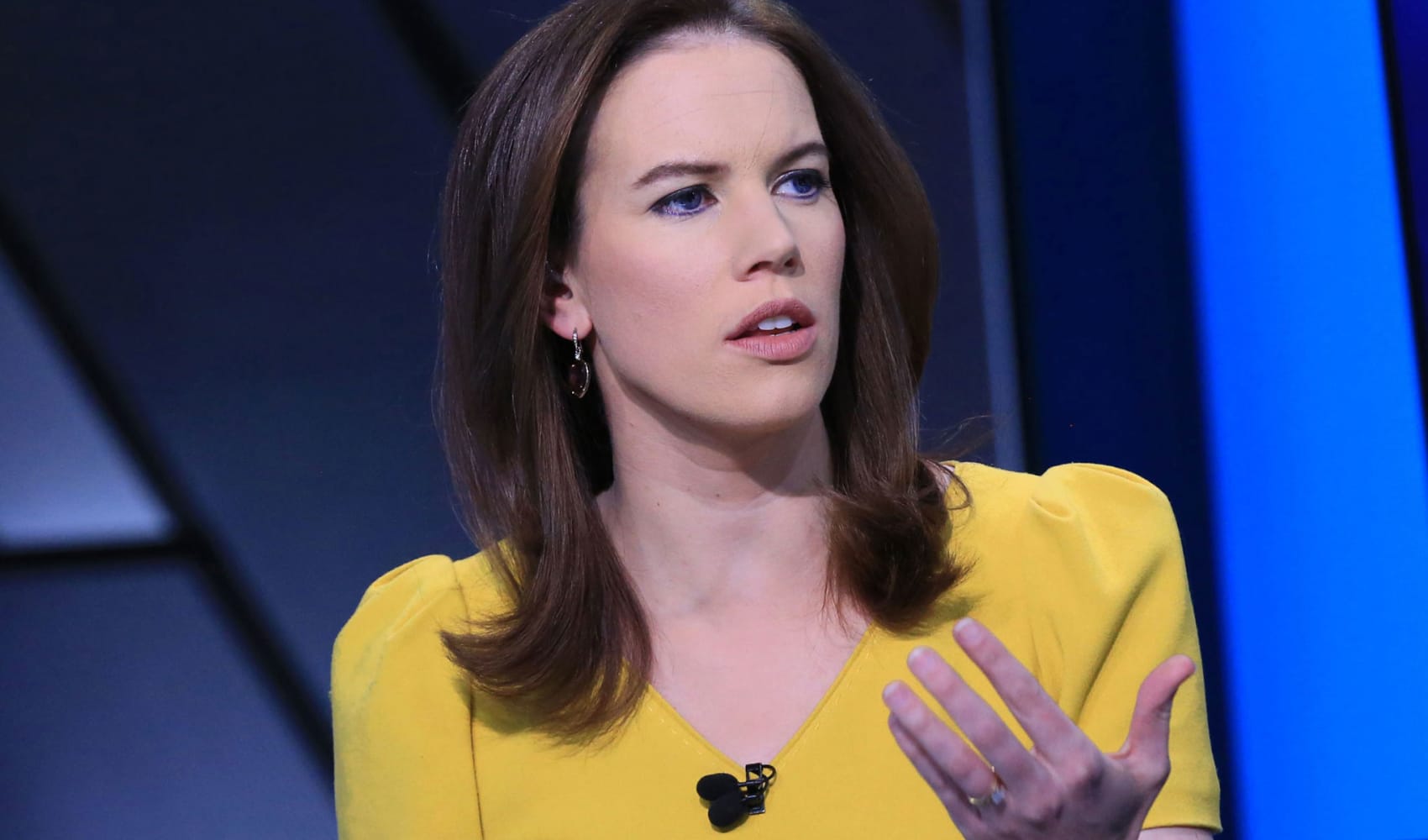
- An uptick in Covid cases and hospitalizations in the U.S., and the emergence of new variants of the virus, are prompting questions about whether it's time for Americans to start masking up again.
- People infected with Covid should wear masks around others to prevent the spread of the virus.
- For those not infected, the decision to mask depends on a few things. That includes your personal risk level, Covid rates in your region and who you might make contact with, experts said.
An uptick in Covid cases and hospitalizations in the U.S., and the emergence of new variants of the virus, are prompting questions about whether Americans should start masking up again.
One thing's for sure: People infected with Covid should wear masks around others to prevent the spread of the virus.
For those not infected, the decision to mask depends on a few things. That includes your personal risk level, Covid rates in your region and who you might make contact with, public health experts said.
First and foremost, people at high risk of serious illness or death from Covid should consider wearing masks in crowded and public spaces, especially in poorly ventilated areas.
That applies to elderly adults and people with diabetes, cancer, HIV, a history of heart disease or stroke or other immunocompromising conditions, according to the Centers for Disease Control and Prevention.
"Anytime we're seeing an uptick in cases, we should start with telling highly vulnerable populations that they should prepare for this and be a little bit more cognizant of the things they can do to protect themselves. And I think masking is one of them," Andrew Pekosz, a professor at the Johns Hopkins Bloomberg School of Public Health, told CNBC.
That's because Covid infections in people 65 and above and other high-risk groups are driving the increase in hospitalizations and deaths right now, according to Pekosz.
The CDC said weekly new Covid hospitalizations in the U.S. jumped nearly 19% last week, a sixth straight week of increasing admissions. Newer Covid variants like the now-dominant EG.5, or "Eris," and a handful of XBB strains have fueled the rise. All of those strains are descendants of the omicron variant.
Get a weekly recap of the latest San Francisco Bay Area housing news. Sign up for NBC Bay Area’s Housing Deconstructed newsletter.
New Covid shots from Pfizer, Moderna and Novavax are slated to roll out in mid-September, and will likely provide robust protection against those variants. But until then, experts say masking is an important tool people can use to protect themselves as Covid starts to spread at a higher level nationwide.
That also applies to Americans with normal risk levels, who should also consider masking depending on where they are or who they make contact with.
"If we have learned something from the pandemic it's that masking works to protect from transmission," said Dr. Francesca Torriani, professor of clinical medicine at the University of California, San Diego.
And implementing institution-level mask mandates in certain health-care settings and businesses can "really reduce the risk of running into large outbreaks," according to Pavitra Roychoudhury, a professor of laboratory medicine at the University of Washington School of Medicine.
However, it's unclear how many Americans will choose to mask up.
Many people don't appear to be worried enough about the recent rise in cases to change their behavior: Covid was at the bottom of respondents' list of key public health threats, according to a poll released last month by Axios and Ipsos.
The percentage of people who wear a mask some or all of the time has dropped to 15%, the poll added.
When to mask
All people, regardless of risk level, should consider masking if certain Covid metrics in their region are high.
The CDC recommends masking based on the number of Covid hospital admissions in a county – data that can be accessed on the agency's website.
The CDC recommends that everyone wear a mask in jurisdictions that have 20 or more people with Covid in local hospitals per 100,000 people. That currently applies to seven counties across the U.S.
The agency also recommends masking for high-risk people in counties where 10 to 19.9 people per 100,000 are hospitalized from the virus. The threshold applies to 117 counties nationwide, including 22 in Florida alone.
People should continue to monitor hospitalization levels in their counties heading into the fall and winter, when the virus typically spreads more widely.

Masking decisions should also depend on who people see.
"We need to know when it's safer to mask for our protection, but also for the protection of others," said UC San Diego's Torriani.
For example, it might be a good idea for someone to wear a mask if they're visiting locations with many high-risk individuals, such as retirement homes, nursing homes, care facilities and hospitals.
People should also consider masking if they're caring for a family member or friend who is at high risk of severe Covid, according Roychoudhury.
Those at normal risk levels might also want to consider what may happen if they choose not wear a mask.
"For most people who are healthy, they could think about it in the case of actually catching Covid," Roychoudhury said. "They might miss a week's worth of work or feel miserable, so they should ask themselves if they want to take that chance."
She noted, however, that several widely available tools can make Covid infections far less severe, such as antiviral medications and vaccines.
Mask mandates making a comeback
Nationwide and state-level mask mandates aren't in place anymore, and Roychoudhury said she would be "very surprised" if universal masking requirements are reinstated.
But she said businesses, schools and health-care systems could implement institution-level mask mandates again, especially if cases and hospitalizations rise even more across the U.S.
A handful are already doing that: Morris Brown College, a historically Black college in Atlanta, announced earlier this month that it would restrict gatherings and implement a mask mandate for two weeks due to reports of positive cases among students.
Health-care company Kaiser Permanente reissued a mask mandate at its Santa Rosa, California, facilities after seeing an increase in patients testing positive for Covid.
So did several hospital systems in New York state, including Auburn Community Hospital and United Health Services.
Even Hollywood studio Lionsgate temporarily required employees to wear masks on two floors of its five-story office building due to a Covid outbreak earlier this month.






